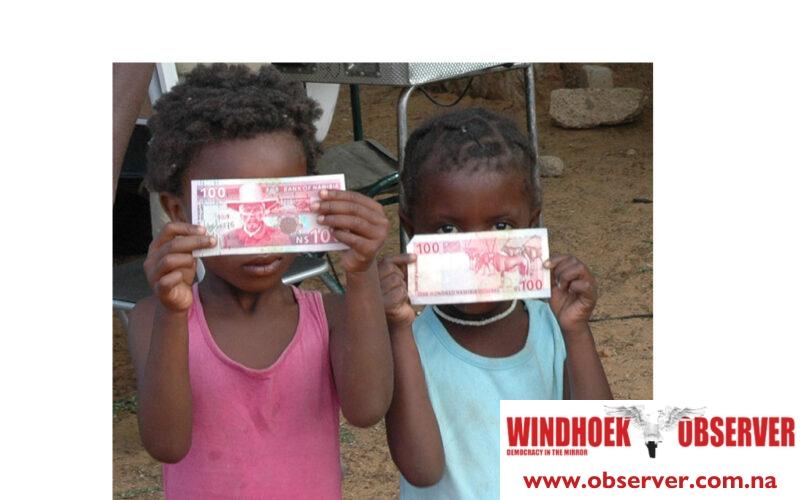Niël Terblanché
A petition demanding the immediate implementation of a Universal Basic Income Grant (BIG) has been submitted to the Minister of Gender Equality, Poverty Eradication, and Social Welfare, Doreen Sioka.
The petition was handed over to Sioka on Saturday in Windhoek to highlight a universal, unconditional basic income grant of N$500 per month for all Namibians up to the age of 59.
The group sees this as a possible solution to redressing the high poverty, unemployment and inequality rates in Namibia.
The petition, which has garnered 3 589 signatures.
The handover was preceded by a demonstration where petitioners, predominantly youth, voiced their ongoing struggles with poverty and lack of basic necessities such as decent income, housing, clean water, and sanitation.
During the demonstration, the petitioners highlighted their dire living conditions and expressed their belief that the grant could offer economic freedom and enable individuals to pursue their life choices without the constant burden of financial insecurity.
They argued that the grant has the potential to break the cycle of poverty and end hunger across the nation.
Minister Sioka, upon receiving the petition, assured the demonstrators that she would present their demands to the President for further consideration.
“I understand the urgency and importance of your plea, and I will ensure that the petition reaches the highest office for deliberation,” Sioka said.
The petition references a successful BIG pilot study conducted in the small settlement of Otjivero-Omitara.
The programme, which ran from 2008 to 2009, provided N$100 per month to every resident under the age of 60, regardless of their income.
The pilot project aimed to assess the impact of a basic income on poverty and living standards.
According to a report by the Basic Income Grant Coalition, the results of the Otjivero-Omitara pilot were highly encouraging.
The grant led to a significant reduction in poverty, with the number of people living below the poverty line dropping from 76% to 37%.
Additionally, child malnutrition rates decreased, school attendance improved, and there was an increase in income-generating activities among residents.
The community also saw improvements in health, housing, and overall economic activity, demonstrating the potential of a basic income grant to transform lives.
The petitioners argue that implementing a Universal Basic Income Grant on a national scale could replicate the successes observed in Otjivero-Omitara, providing a safety net for all Namibians and enabling them to lead more dignified lives.
They believe that a monthly grant of N$500 would significantly enhance living standards, promote economic inclusion, and empower citizens to make better life choices without the constraints of extreme poverty.
The Namibian government has previously expressed interest in exploring social welfare initiatives to support vulnerable populations.




